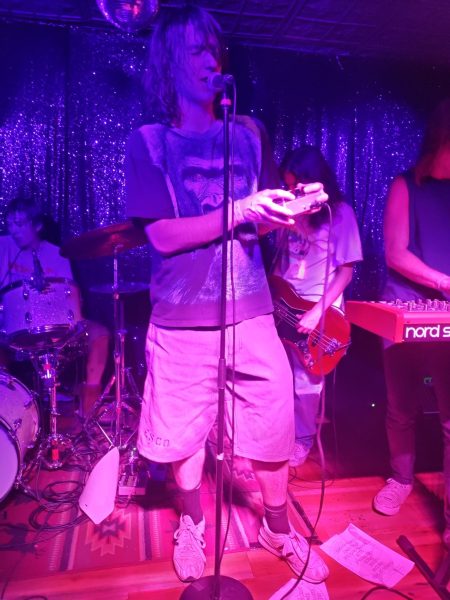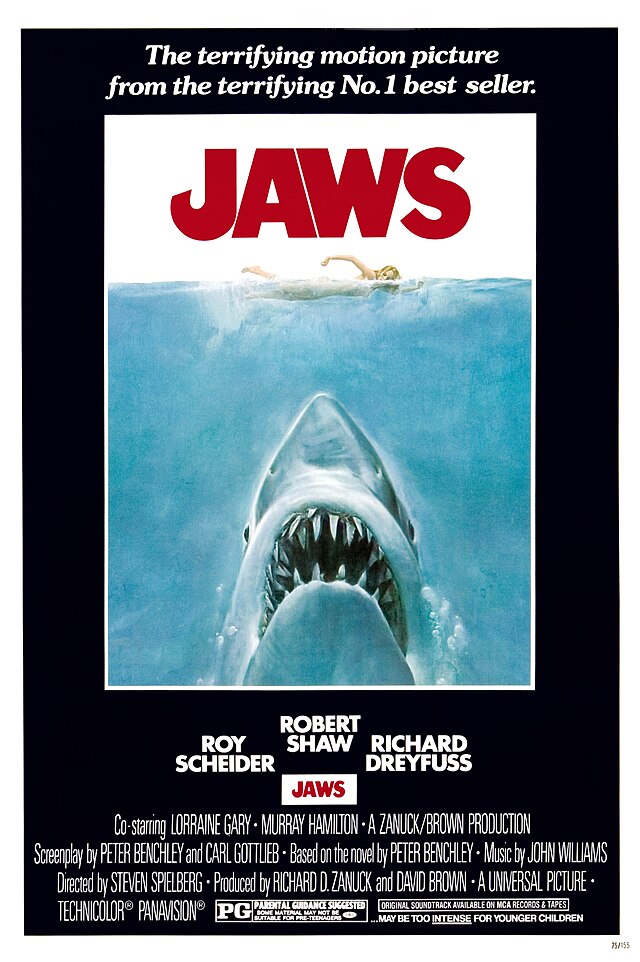The Brooklyn rock band Geese has had quite the journey since getting signed to Partisan Records out of high school in 2020. The four-piece debuted in 2021 with “Projector,” and experienced their first wave of critical acclaim with 2023’s “3D Country,” a classic- and indie-rock influenced jam, with their now-trademark sense of humor and distinct vocal and instrumental styles. Their lead singer, Cameron Winter, released his solo debut record “Heavy Metal,” to similarly effusive praise, and through this a fervent hype developed for their follow-up record. And, as of September 26, it’s here: “Getting Killed” is risk-taking, adventurous, and chaotic rock that never sticks to a certain formula.
Behind the boards on this record: hip-hop studio wizard Kenneth Blume serves as producer, while lead vocalist Winter serves as the mixing engineer. All songwriting credits are divided among the band members — Winter, guitarist Emily Green, bassist Dominic DiGesu and drummer Max Bassin.

The release for this record began on July 8, with the release of single “Taxes,” a bold, indie-rock-style cut that sees Geese asserting their independence against the powers that be. Winter declares that “If you want me to pay my taxes / You’d better come over with a crucifix / You’re gonna have to nail me down,” at which point the song switches into a new melody and instrumental. It was the perfect single to introduce this new era, as it felt like a bridge between the “3D Country” sound and this one.
One of the strongest points of Geese’s music — and arguably most divisive — is their lead singer and songwriter, Cameron Winter. While opinions vary, I find that in their music Winter’s voice is incredibly dynamic, flipping from gentle falsetto to wailing and haggard — sometimes in the same sentence. His caterwauling baritone can chew up and spit out vowels and consonants with equal parts venom and devotion — like the spiritual and sacred lyrical concepts that pepper this record, his vocals feel akin to a sermon, as someone reaching for a higher reaction and way of feeling.
The band states their new direction on the second single (and opening song) “Trinidad,” a buzzy, almost messy track. The song starts sparse, looking for a melody over Green’s funky guitar warbles, until Winter hits us in the face on the chorus, yelling “There’s a bomb in my car!” It’s overpowering, aggressive, hostile — and a decisive forward step in the group’s experimental sounds. “Cobra” immediately sets us into a lighter, more mellow structure, with a pleasing, seemingly romantic melody. The song’s subject expresses equal parts devotion to their lover and an understanding of their fundamental differences. He asserts that “You can make the cobras dance / But not me” in an impassioned plea full of its own venom. However, I felt that the ending here was a little sudden and incomplete.
Then we are treated to “Husbands,” an initially sparse tune, with only vocals and drums, that builds into an anthem with cutting lyrics. Winter’s opening lines on “Husbands” seem to contain his ethos on both the relationship depicted in it and his often cryptic and metaphorical songwriting: “I’ll repeat what I say / But I’ll never explain / So you don’t have to waste your time.” The chorus brings up a question sung in group vocals that only increases its intensity: “Will it wash your hair clean / When your husbands all die?” It has this great anthemic feel towards the end, with everyone repeating the melody and singing, and it all comes to a neat close.
Geese cuts right back in with energy on the title cut of “Getting Killed,” with staccato choral vocals (sampled from a Ukrainian chorus) and a hard-charging melody. This one has the group thinking about trying to get by in the world, to understand themselves, and why this lifestyle and path has them feeling a certain malaise to society. We get another change-up just as the track is swelling up, with subdued drums, guitar, and percussion until Winter yells out “I’m getting killed by a pretty good life.”
“Islands of Men” was the opening song when I saw them perform in 2024, and I was excited to see it as a well-developed, decisive cut on this record. In contrast to the jagged energy and frenetic pacing of previous tracks, this shows their powerful restraint and range of vision for these songs. I went back and forth trying to figure out the best showcase for Winter’s vocals on this record, and for me, it is this one. Starting with light falsetto, building strength and power in the pre-chorus, he goes into full gear on the chorus and delivers one of the best performances on any Geese or solo song.
“100 Horses” was the final single, with lyrics in the perspective of a young soldier, who in the fog of war is told by their higher-ups that what they are doing is alright, or at least acceptable, and that “there is only dance music in times of war.” On “Half Real,” Geese mourns the end of a relationship, one that they choose to still believe in the sanctity of. Winter easily flips between vocal registers and navigates a crescendo of emotion at the end, where the song abruptly stops — another ending I was hoping could be more developed.
“Au Pays Du Cocaine” continues the sweet, measured tone, with a story of pleading with one’s lover to remain with them through personal growth and changes. The rhythm section here is pointed and elevated, with Bassin and DiGesu adding texture and riding Winter’s voice perfectly. On “Bow Down,” we hear an angry, spirited tale of a tormented relationship, with Winter mourning that he ever fell in love, and that now he’s “in hell with Maria’s dead bones.” Then, the song goes from a danceable groove into raucous handclaps and an ending jam with forceful guitar from Green, that underscores the song’s resentment and power.
The ideas and structures on this album all come to a head on the closing track, “Long Island City Here I Come.” It is a contradictory, chaotic, unwieldy thing, clocking in at almost seven minutes, and begins with a small hum until growing into an abundance of rough noise. Winter immediately plays into the contradictions of the song with the opening lyrics “Nobody knows where they’re going except me,” and ending with “Like Charlemagne on the midnight bus / I have no idea where I’m going / Here I come.” The effect culminates in Winter chanting “here I come, here I come, here I come,” as the instrumental gets faster and faster, almost like he is running towards his target, though he can’t quite say what it is. This was a brilliant choice to end the album on — it is the most definitive statement yet on where Geese wants to go, and it still leaves the listener wanting more.
This is truly an excellent record — both because it builds on the potential we knew Geese had from “3D Country,” and because it throws everything they were doing on that record out the window in favor of a different sound. It is nothing like I expected, and in that way it is exactly what I wanted. Other than my disappointment with a few song endings, I loved every single song on this record and enjoyed the dynamic twists the band chose to take. Whatever direction Geese decides to fly in next, listeners would do well to follow.




